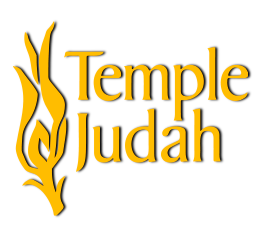At the beginning of this month, we will find ourselves reading Parashat Kedoshim in our Torah. One of the most famous verses from this parash is “You shall not take vengeance or bear a grudge against another. You shall love your neighbor as yourself (Lev. 19:18).” It is a wonderful verse. One of the very best in all of Torah. Rabbi Hillel even believed that it was the central lesson of all Judaism, which he then taught as “What is hateful to you, don’t do to another.”
This verse is seen as the very middle of the Torah, more or less; i.e. the middle of the book of Leviticus, which is the middle book of the five. So in many ways it is the very heart of the Torah. But this verse doesn’t stand alone. It is found in a section of Torah known as the Holiness Code. Ethical teachings about how to get along with each other, and the world around us.
First we learn, when you harvest your fields and your vineyards, don’t go all the way to the edges; leave something there so that the hungry can glean. Leave food for the poor and the stranger.
Then, don’t steal, and don’t swear falsely, which are, admittedly, pretty basic. But next the Torah urges us not to keep a laborer’s wages overnight: if you employ someone, give them their money right away, so that they can sleep and eat and be safe. In the Torah’s understanding, keeping someone’s paycheck until morning is a kind of theft.
Don’t insult the deaf. Which isn’t just about the actual hearing impaired but also about insulting people when they’re not around to hear it. Act as though Someone were always listening. Don’t put a stumbling block before the blind. Again a verse that isn’t just about the blind, but about everyone. Don’t trick people, don’t trip people up, don’t obstruct. Literal blindness or figurative blindness, the teaching still holds true.
Don’t hate your brother or your sister in your heart. You can give someone a gentle reproof, but don’t hold a grudge. That’s not good for you or for the person you’re angry at.
It’s only after all of these commandments that we reach “Love your neighbor as yourself.” This isn’t just a polite pleasantry. The rabbis teach that this is an actual “mitzvah of the Creator” — A commandment to which God is also obligated. One Hasidic teaching holds that God created humanity because God needed a “neighbor,” an “other,” with whom to be in relationship. God created us because God couldn’t be whole without us, without extending love to another. And if we’re called to be like God, we need to extend that love to our “others” too.
So, how best do we do that? We feed the hungry. We act justly toward those who work for us. We treat those who are deaf, and those who are blind, with respect and admiration and compassion. We relate to one another fairly. We love our neighbors as ourselves. That is how we emulate the holiness of God, and in doing so, become holy ourselves.
Rabbi Todd

